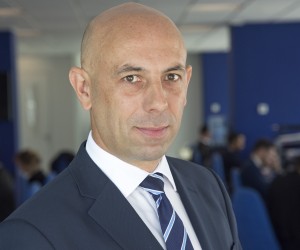“A complete restructure of the South African economy is necessary in order to build consumer and investor confidence,” affirms Gavin Smith, Head of Africa at deVere Acuma, one of the world’s leading independent financial advisory organisations.
This bold statement from Smith is made following the May 2019 elections as South Africans now wait with bated breath to see what lies ahead for the country after this highly anticipated political event.
Smith further points out that political uncertainly, debt, load shedding, corruption, state capture and the possible nationalisation of the South African Reserve Bank (SARB), amongst other issues, have been the deciding factors for many investors to look to international opportunities to create, build and safeguard their wealth.
“While it has become clear that there is no quick and easy fix when it comes to driving SA’s economy towards growth, President Cyril Ramaphosa will now be under serious pressure to streamline his cabinet and review economic policies, to carefully look at plans around land expropriation without compensation, as well as find a sustainable solution for Eskom and other beleaguered SEOs,” he says.
Another sword hanging over the SA economy is whether the country will be further downgraded by ratings agency Moody’s in November. “Moody’s is the only rating agency to still give SA an investment grade rating,” explains Smith. “Other major rating agencies, Fitch Rating and S&P Global downgraded SA’s credit rating to sub-investment grade in 2017.”
An additional downgrade by Moody’s to sub-investment grade, he adds, means the country will be ejected from the Citi World Government Bond Index requiring asset managers to sell billions of rands worth of SA bonds. “Not only will this have dire consequences for the economy and far reaching effects in terms of rand value, it will make it increasingly difficult to attract new investment into SA,” Smith points out.
The country and the international investment community, adds Smith, will be watching closely to see who the president elects to his new cabinet and whether these will be competent appointments or politically expedient selections given the limited pool of available candidates. The extent to which the president reduces the size of his cabinet and is able to unite a divided and fragmented ANC, will be other factors coming into consideration.
“The names of Parliament’s Presiding Officers have already been announced, indicating a focus on female representation, while certain officials involved in corruption have been given the boot,” he says, adding that it is imperative that these individuals are held accountable for their actions and dealt with accordingly.
“Investors will be looking for some kind of certainty around the mandate of the SARB and what the president’s plans are in terms of nationalising the bank. They will also be seeking answers around how he plans to finance Eskom’s debt and the sale of South African Airways,” says Smith.
“Ultimately, a total restructure of the economy is required so that growth can be supported,” he says, adding that the president urgently needs to focus his attention on revitalising the economy with practical solutions. Of equal importance is creating a stable regulatory environment that builds both business and consumer confidence.
“Not only has land expropriation without compensation already negatively affected the economy and lowered investor confidence, but the rand continues to be susceptible to the slowing of the world’s major economies,” Smith informs.
Given the current economic and political landscape of the country, he says investors will inevitably look to international options. He cautions, however, that investments should remain diversified in terms of both asset class and geographic location. “This safeguards savings from any uncertainty, allows for opportunities to be taken as they become available, and ensures the investor is exposed to bonds and equities from a variety of issuers,” he concludes.






